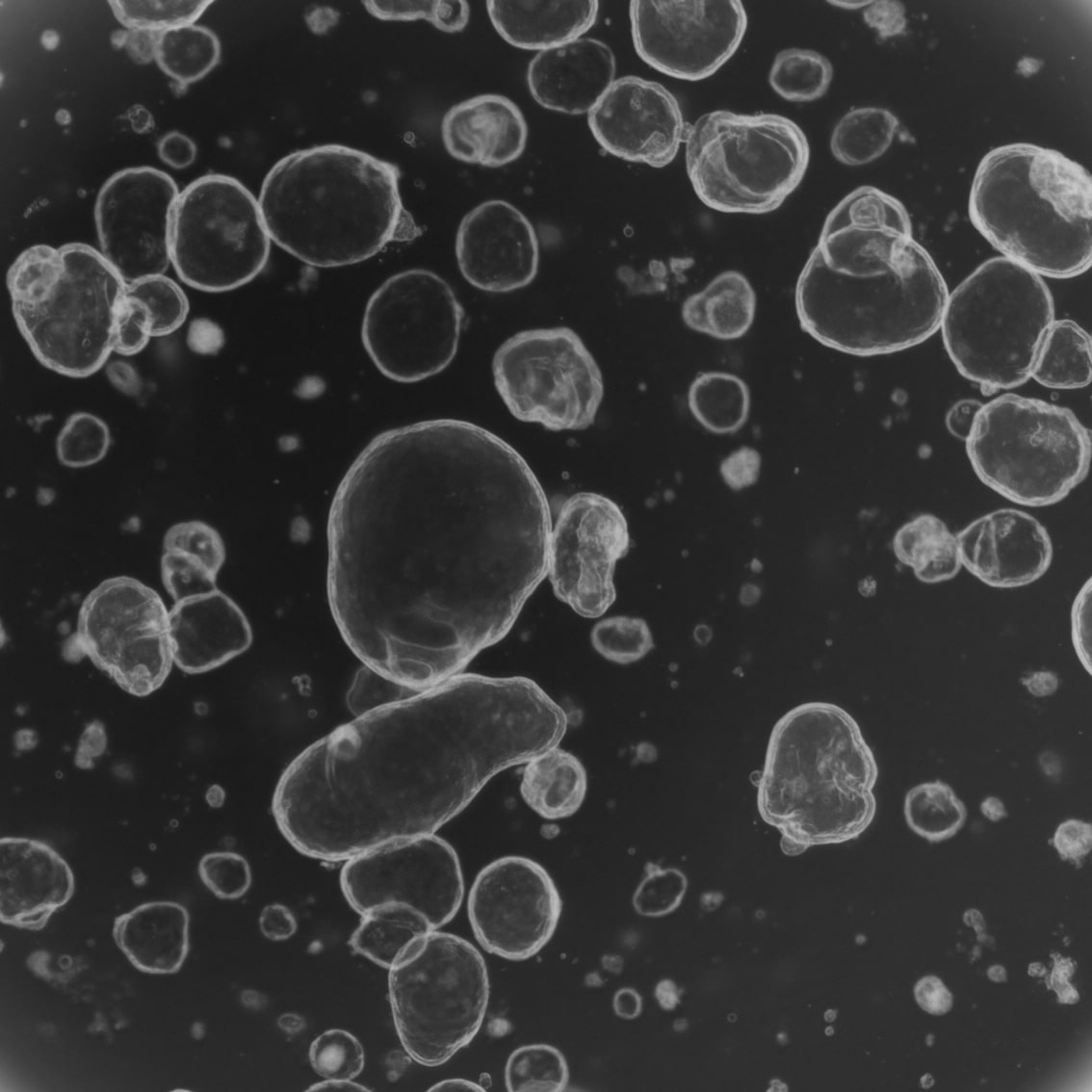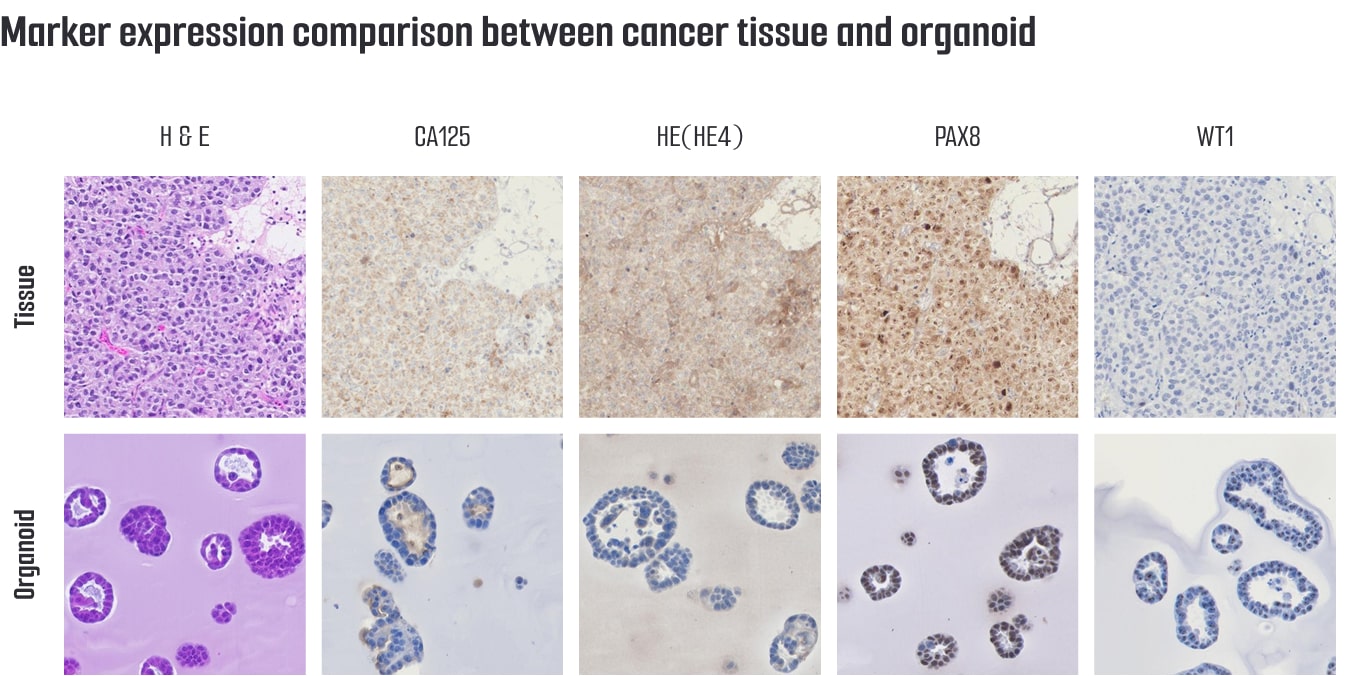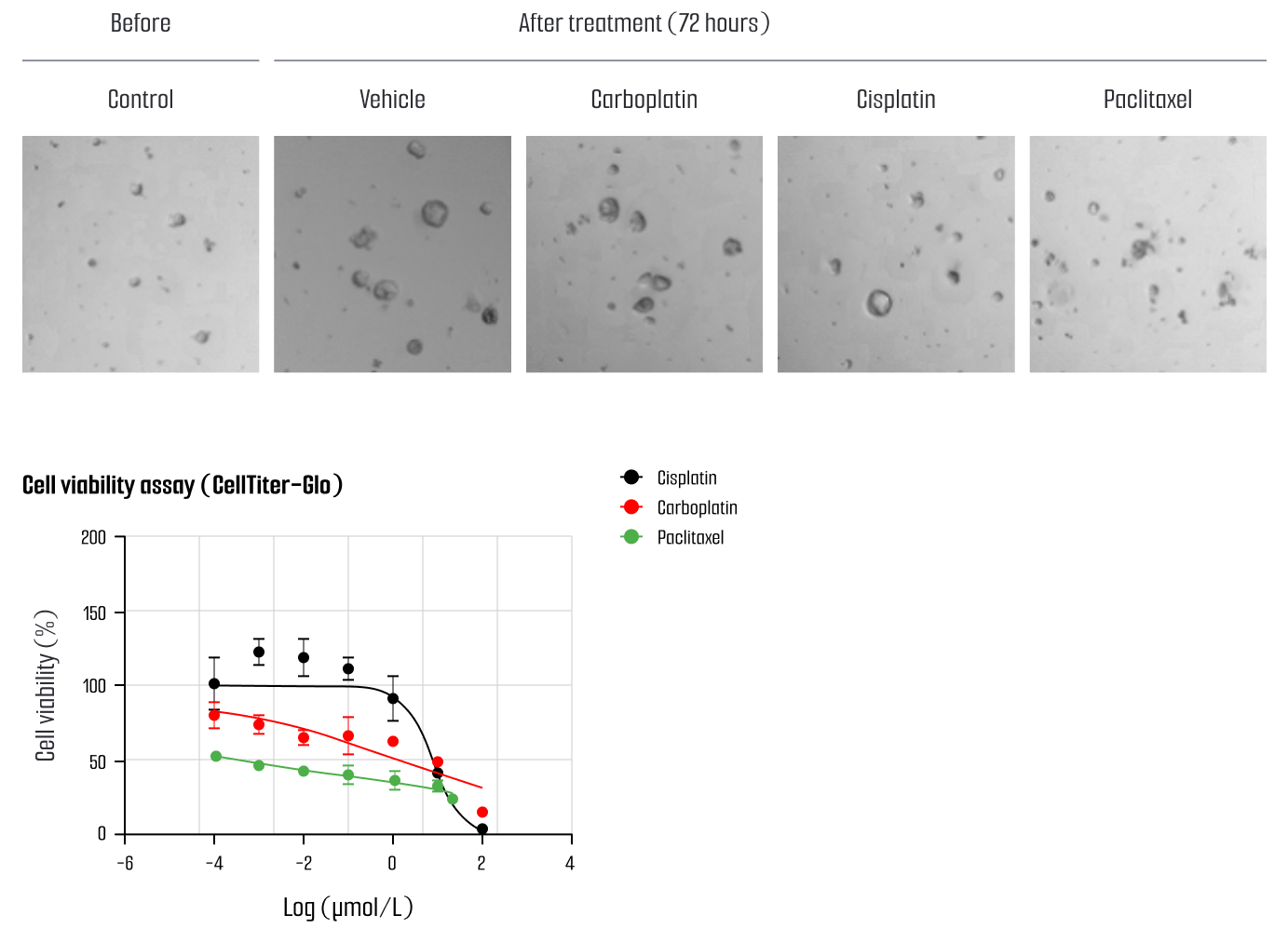
Price | 1784€+ Login to see price |
Organism | Human |
Product Type | Tissue derived organoid |
Tissue | Ovary |
Disease | Ovarian Cancer |
Applications
Toxicity
Small molecules
mRNA
Antibody
Cancer vaccine
Immune Cells
Immuno Oncology with TME
Cytotoxic T cell
TIL (Tumor infiltrating lymphocytes)
Regulatory T cell
Macrophage
CAF (Cancer associate fibroblast)

With the global rise of K-beauty, the cosmetics industry continues to grow steadily. Since the ban on animal testing for cosmetics in Korea in 2017, various alternative testing methods have...

Traditional microscopy methods often require fluorescent labeling to analyze cellular structures, which can be time-consuming and invasive. In contrast, our HT-X1 system allows for high-resolution visualization of cellular morphology without...

Traditional protein analysis has primarily focused on quantifying expression levels within tissue samples. However, recent advances in spatial analysis techniques have shifted attention toward evaluating not only expression levels, but...
Among the many fermented foods we consume, kimchi is particularly known for containing a diverse range of lactic acid bacteria, which are believed to influence the activation of immune cells...
We conducted a study focused on identifying disease-related markers using patient-derived tissue samples. However, traditional methods limited our ability to analyze multiple candidate markers simultaneously, and the limited availability of...
Our ovarian cancer organoids exhibit high pathological similarity to patient-derived tumor tissues, expressing key ovarian cancer markers such as CA125, HE4, PAX8 and WT1.
Immunohistochemistry (IHC) analyses confirm that these markers are expressed in the organoids in patterns consistent with primary tumors, reflecting their differentiation status and histological characteristics.
These pathological marker analyses demonstrate that ovarian cancer organoids faithfully recapitulate the morphological and molecular features of patient tumors, making them a reliable platform for cancer pathology research, drug development, and personalized therapy evaluation.

A tailored solution for evaluating the efficacy and resistance of new drugs is available using an established ovarian cancer (OVC) organoid library.
By leveraging comprehensive drug sensitivity data, the most suitable organoid lines are selected based on the characteristics of the investigational drug, enabling precise and reliable drug testing.
Drug sensitivity tests have been conducted using Carboplatin, Cisplatin and Paclitaxel which are widely used in clinical cancer treatment, and drug response data from a subset of OVC organoid models has been collected.
This dataset continues to expand as additional testing is performed.
This organoid-based drug sensitivity testing platform enhances the efficiency and reliability of the drug development process and contributes to the advancement of personalized cancer treatment strategies.

Lambda Biologics GmbH
Deutscher Platz 5 c, 04103, Leipzig, Germany
info@lambdabiologics.com